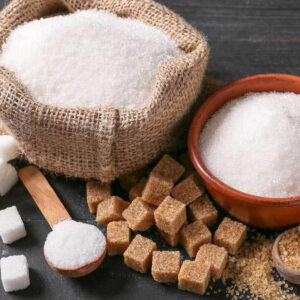Many chefs specify either beet sugar vs cane sugar, depending on the intended outcome.
Many chefs specify either beet sugar vs cane sugar, depending on the intended outcome.
Blog Article
Discover the Uses and Perks of Beet Sugar Vs Cane Sugar in Your Daily Diet Plan
Discovering the distinct qualities of beet and cane sugar exposes greater than simply their sweetening capacities; it highlights their special influences on wellness and culinary arts. Beet sugar, recognized for its subtle flavor, is often favored in delicate treats, whereas cane sugar, with its tip of molasses, includes splendor to robust meals. Each kind holds its own dietary profile and glycemic ramifications, welcoming a much deeper understanding of their functions in a balanced diet regimen and sustainable intake methods.
Beginning and Production Processes of Beet and Cane Sugar

The distinctive environments and soil kinds needed for growing sugar beetroots and sugarcane add to distinctions in their growing methods and geographic circulation, affecting the business economics and sustainability of their manufacturing. beet sugar vs cane sugar.
Nutritional Contrast In Between Beet Sugar and Cane Sugar
Regardless of originating from various plants, beet sugar and cane sugar are nutritionally really similar, both primarily containing sucrose. Each gives regarding 4 calories per gram, translating to about 16 calories per teaspoon. Structurally, both sugars are made up of about 99.95% sucrose, with very little quantities of other substances like moisture and trace element, which do not substantially change their dietary accounts.

Inevitably, when choosing between beet sugar and cane sugar based on dietary content alone, both offer similar advantages and disadvantages as they are essentially types of the same molecule-- sucrose, supplying fast energy without various other nutrients.
Effect On Wellness: Glycemic Index and Caloric Content
Discovering additionally right into the impacts of beet sugar and cane sugar on health and wellness, it is vital to consider their glycemic index and caloric material. The glycemic index (GI) of both beet and cane sugar is around 65, classifying them as high-GI foods, which blog here can create quick spikes in blood sugar degrees.
Each kind of sugar contains about 4 calories per gram, making their caloric content equivalent. For those checking caloric consumption, especially when handling weight or metabolic wellness conditions, recognizing this equivalence is vital (beet sugar vs cane sugar). Nonetheless, too much usage of any type of high-calorie, high-GI food can add to wellness issues such as weight problems, heart problem, and insulin resistance.
Environmental and Economic Factors To Consider of Sugar Production
Beyond wellness influences, the production of beet and cane sugar More Help additionally elevates significant ecological and financial worries. Sugar beet farming often tends to need cooler environments and has a lower geographical impact contrasted to sugar cane, which grows in exotic areas.
Furthermore, the usage of pesticides and plant foods in both beet and cane sugar growing can result in dirt destruction and air pollution, further impacting biodiversity and regional water bodies (beet sugar vs cane sugar). The choice in between growing sugar beet or cane often rests on local ecological problems and financial elements, making the sustainability of sugar production an intricate issue
Culinary Applications and Taste Differences
While the ecological and financial elements of sugar production are certainly significant, the selection in between beet and cane sugar likewise affects cooking applications and flavor accounts. Beet sugar, acquired from the sugar beet plant, is understood for its extremely neutral taste.
Walking cane sugar, removed from sugarcane, usually keeps molasses traces, which give an unique richness and depth. This small molasses flavor why not try this out improves the intricacy of baked items, sauces, and sauces. It is especially preferred in things where a caramel touch is wanted, such as in brownies or gingerbread. Additionally, the minor variation in dampness material between beet and cane sugar can affect the texture and uniformity of meals, making cane sugar a favored option for specific dishes that gain from its unique residential or commercial properties.

Verdict
Finally, both beet and cane sugar have unique beginnings and manufacturing procedures, supplying similar nutritional profiles with minor differences in sodium material and taste. While their effect on health and wellness, especially relating to glycemic index and calories, is equivalent, the option between them typically steams down to ecological, financial elements, and certain culinary requirements. Comprehending these elements can lead customers in making educated choices that line up with their health objectives and flavor choices.
Report this page